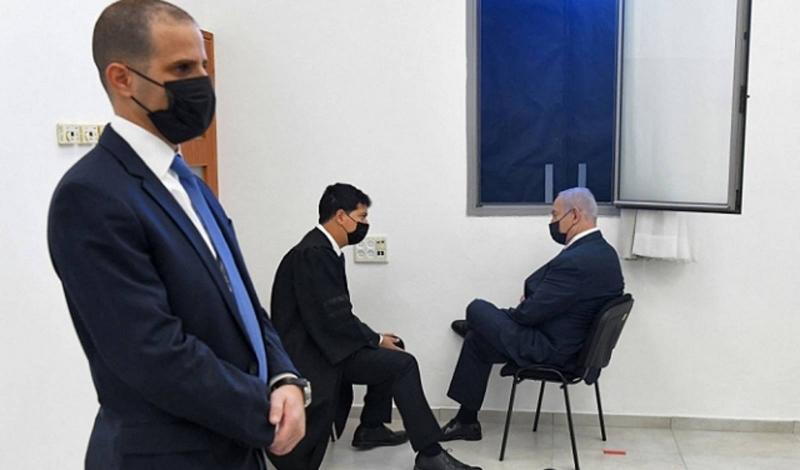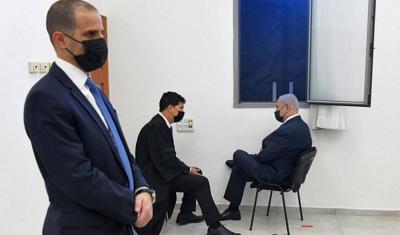The Israeli public prosecution today opposed Prime Minister Benjamin Netanyahu's request to postpone his testimony in his serious corruption trial to March of next year. They informed the Central Court in Jerusalem that they are requesting that he provide his testimony no later than early November of this year. In response to Netanyahu's lawyers' request for a postponement, the prosecution stated that the phase for presenting defenses should begin after the Jewish holidays in October and that a four-month extension granted to defendants is "too lengthy."
Last month, Netanyahu's lawyers filed a motion with the court to start presenting defense arguments in March due to the war in Gaza and the extensive charges brought against Netanyahu regarding bribery, fraud, and breach of trust. According to the law, defense arguments against the charges must start with the testimony from the primary defendant as listed in the indictment, which is Netanyahu.
The Central Court in Jerusalem decided to hold a session on September 9 to address the matter. The prosecution clarified in their response that Netanyahu had previously claimed he could handle the criminal trial alongside his duties, and he is now asserting that he cannot do so. The prosecution emphasized that "Defendant Number 1 did not previously claim that he could not undergo trial while in public office, and he is not expressly claiming that today either. On the contrary, Defendant Number 1 has made it clear on several different occasions that his tenure will not affect the management of the proceedings."
The prosecution added that "if Defendant Number 1 has changed his stance, and his new position is that holding public office does not allow for a proper and orderly trial, then he must clarify this explicitly. In any case, this should not be condensed into a passing item in the request for postponement, after the opposite was claimed in previous proceedings."




